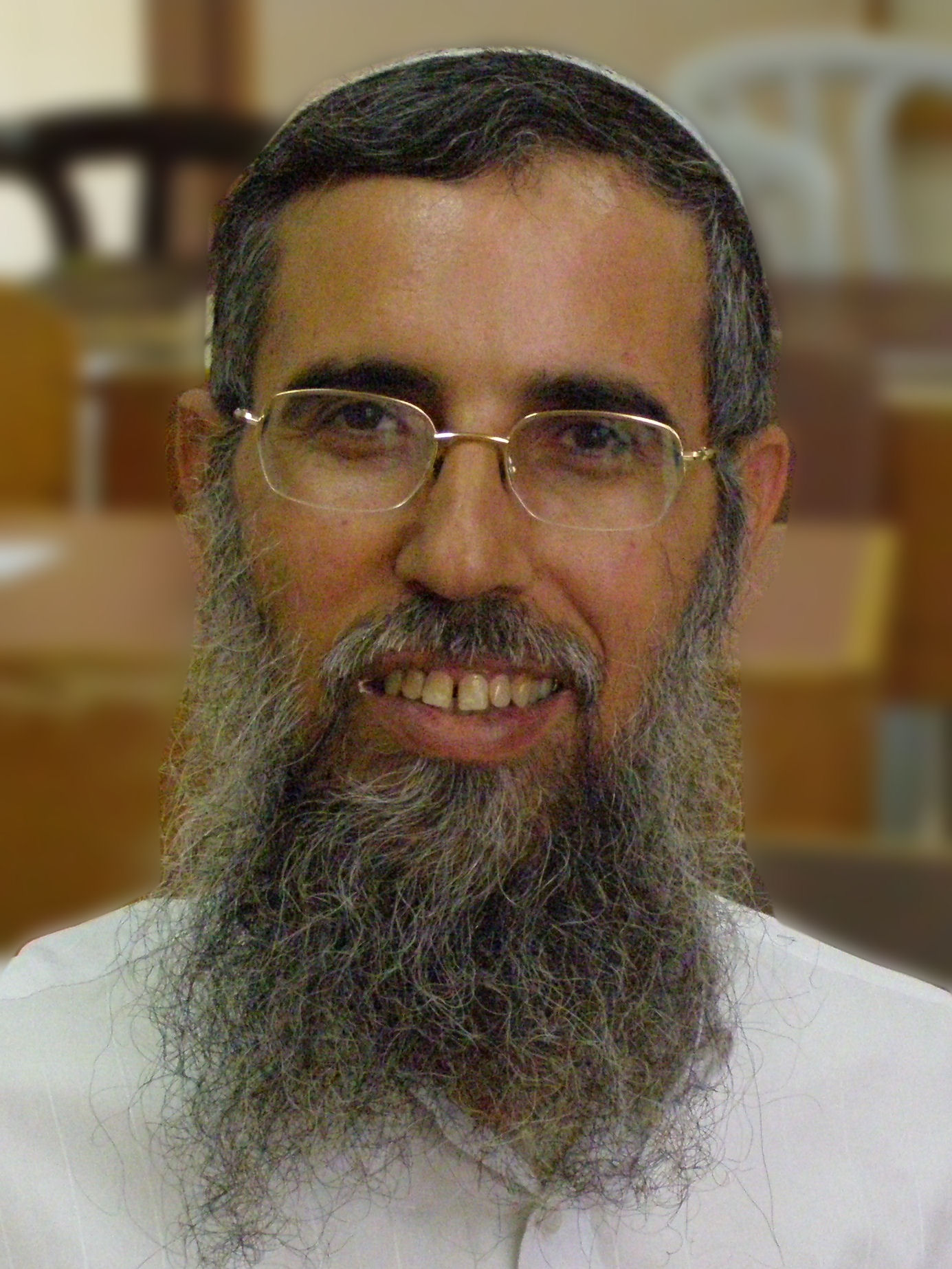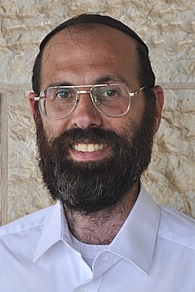Pardon and Atonement
הרב ציון לוז
The Gemara in Rosh Hashana (32b) explains that we do not recite Hallel on Rosh Hashana because of the solemnity of the day:
R. Avahu said: The angels said before G-d, “Why do Israel not recite song (i.e., Hallel) before You on Rosh Hashana and Yom Kippur?” He said to them, “Is it possible that the King sits on the Throne of justice, and the books of the living and the books of the dead are open before him, and Israel should say song?”
On the other hand, the Tur, in the beginning of the laws of Rosh Hashana (O.C. 581), writes that one should bath and cut his hair before Rosh Hashana, because we are confident about the outcome of the judgment, based on the following Midrash:
Which nation is like this nation that knows the nature of its G-d? Normally, a person who has a judgment wears black ... and grows his beard and does not cut his nails, because he does not know the outcome of his judgment. However, Israel is not so! They wear white ... and cut their beards and cut their nails and eat and drink and are happy on Rosh Hashana, because they know that G-d will do a miracle for them.
Yom Kippur, on the other hand, is full of crying and pleading, and there is no assurance that we will emerge victorious. Just the opposite. A red string was tied to the seir hamishtale’ach. If it would turn white, the people would be happy; if not, they would be sad. On Rosh Hashana we are assured of a positive outcome; on Yom Kippur not. Why is this so?
Furthermore, on Rosh Hashana the only mitzvah that the Torah speaks of is blowing shofar, and even this is only hinted to. All that we have to do is to blow shofar and keep calm. On Yom Kippur, though, the entire order of the day is explicit, with a lengthy service of sacrifices and a prominent obligation to fast. What is the difference between Rosh Hashana and Yom Kippur?
The source of Yom Kippur is in the sin of the golden calf. Bnei Yisrael create the calf and worship it. G-d informs Moshe of this and alerts him that He plans to annihilate them. Moshe pleads with G-d, who annuls this plan: “Hashem reconsidered regarding the evil that He declared that He would do to His people.” (Shemot 32:14) We are left with the impression that this sin is atoned for.
However, we see that Moshe goes down, and when he sees the golden calf he breaks the Tablets and judges the sinners. The next morning tells the people, “You have committed a grievous sin! And now I shall ascend to Hashem – perhaps I will win atonement for your sin.” To this plea, as well, the initial impression that G-d’s response was affirmative, and He refuses to erase Moshe from His book. However, G-d then declares, “u’veyom pokdi – u’fakadti” – “On the day that I make My account, I shall bring their sin to account against them.” (32:34) Chazal teach that every trouble of Israel has an element of punishment for the golden calf in it. The sin is not atoned for until a long history of troubles. The portion concludes, “Hashem struck the people with a plague.” (32:35) Then what is the conclusion of the first portion, which we read on fast days, “G-d reconsidered the evil?”
R. Tzaddok of Lublin explains that whenever a person sins against G-d, in addition to the sin itself, he rebels against G-d and disobeys Him. The greatest rebellion is idolatry, especially right after G-d declared in the Ten commandments, “I am Hashem, your G-d ... You shall not recognize other gods.” (Shemot 20:2-3) Thus, the sin causes great anger, on account of the audacity of the rebellion. In addition, the sin causes damage to the soul. Thus, the term “anger” apppears many times:
“Let My anger flare up against them” (32:10)
“Why, Hashem, should your anger flare up against Your people?” (32:11)
“Relent from Your flaring anger.” (32:12)
Moshe first wants to appease G-d’s anger. We have assurance about this from G-d, that if we ask for appeasement – “Calm down!” – G-d responds immediately. Thus, there is no dialogue on this point. Moshe simply mentions the merit of the patriarchs, the chilul Hashem of Egypt, and immediately, “Hashem reconsidered.” Note that at that time Bnei Yisrael are still in the midst of worshipping the calf! Thus, reducing the anger in not connected to Teshuva, but to asking for pardon.
R. Tzaddok adds that even though G-d pardoned Bnei Yisrael, there was great damage to the Jewish soul. When Moshe tells the people, “You have committed a grevious sin” (32:30), this alludes to the damage to the soul. This was a very destructive act; no asking for pardon can help this. It can be compared to a doctor who warned his patient not to eat something, but the patient disregarded the doctor’s order and fell sick. At first the doctor is very angry that the patient disregarded his instructions. The patient appeases the doctor not to be angry, but this will not help him recover until he takes the medications. The same occurs with traffic accidents. The two parties initially get into a heated argument, blaming each other. Although the damaged party can forgive after his initial heat, but the guilty party still needs to fix the car. Similarly, in a number of countries it is customay to grant clemency to prisoners on Independence Day. This merely removes society’s anger, but still leaves a long way for the healing of the criminal’s soul.
Here too, the initial anger and thought, “Desist from Me. Let My anger flare up against them and I shall annihilate them” (32:10) – G-d pardons right away. The great spiritual damage, though, the worst in all of history, is not simple to rectify. Moshe tells the people, “Perhaps I can atone for your sin.” It is clear that if you damage someone’s car, you would not dare ask to be exempt from paying the repairs. Here Moshe needs to introduce a new idea, “Erase me now from Your book.” (32:32) Chazal interpret this book as olam haba. G-d answers, “u’veyom pokdi – u’fakadti” – the only way to rectify this damage to the soul is through three throusand years of suffering.
With this, we can address the concept of a sacrifice, which is brought only for unintentional sins, which do not generate wrath. Thus, when the Torah mandates to bring a sacrifice, it must be to rectify the soul – “Let him bring a sacrifice, and he will be atoned for.” A sacrifice atones. That is why Moshe says, “Perhaps I can atone.” G-d responds to this, “No, u’veyom pokdi – u’fakadti” – only a long history of troubles will return Israel to the purity of soul.
Chazal describe that wisdom, the Torah, and the prophets were asked regarding the fate of the sinner, and all responded that he is destined for death. Only G-d responds that he should repent and be atoned for. Many ask, G-d is always called merciful, so didn’t the Torah and the wise and prophets know this? The answer is that they assumed that G-d’s mercy relates to His anger, but as far as improving the soul – the only way is death, or perhaps a sacrifice may have this technical abiltiy.
Yerushalayim is called, “yefe nof mesos kol ha’aretz” (fairest of sites, joy of all the earth) (Tehillim 48:3), since people would enter it as sinners and exit pure and rejoiceful. To receive pardon one doesn’t have to come to Yerushalayim; only to purify the soul.
On Yom Kippur, G-d declares that this purification of soul is possible to do also on a national level. Instead of private sacrifices, bring a seir hamishtale’ach and recite viduy on behalf of all the people. In this way, atone for the entire nation through the service of the Kohen Gadol. Thus, Yom Kippur is a day focused on purifying the soul. The Rambam continues, based on the Midrash: Now that there is no Temple, Teshuva has the ability to cleanse a person from his filth.
We say in the Selichot, “Yom ze lecheit Bnei Yisrael ani sole’ach.” (On this day, I forgive the sin of Bnei Yisrael.) Rosh Hashana is the day on which G-d grants clemency to the people. It is the pinnacle of the Selichot of Elul, on which G-d pardons, but now we have to begin a new phase of purification and cleansing of the soul.
With this we can resolve the contradiction that we began with. The great joy on Rosh Hashana is because of the assurance of clemency. The sadness is due to the concern about the need to repair the damage. After Rosh Hashana have to take the sins and begin working on them, repairing the damage. The funtion of the ten days, culminating with Yom Kippur, is repairing. This is not to say that Yom Kippur is not a day of pardon, but yet, “There is no pardon without rectification.”
Elsewhere, R. Tzaddok writes that we find Teshuva out of love and Teshuva out of fear. In Teshuva out of fear, intentional sins are converted into unintentional. What then completes the atonement for unintentional sins? “Zivchei Elokim ruach nishbara.” “The sacrifices G-d desires are a broken spirit.” (Tehillim 51:19) A sacrifices erases an unintentional sin. You want a substitute for a sacrifice? – “A broken and humbled heart, O G-d, You will not despise.” If you don’t cry and humble yourself, the unintentional sin remains; through a broken heart you atone.
G-d swears that the sin of the house of Eli will not be atoned for through sacrifice. Pardon maybe, but not atonement. Yet, Rava and Abaye teach that it can be atoned for through Torah and acts of kindness. Had we lived in the times of the Temple, after the pardon of Rosh Hashana, perhaps we would rely on service of the Kohen Gadol to achieve atonement. Now, we need Torah, Teshuva and Gemilut chasadim.
Therefore, on a fast day, when we feel G-d’s wrath, the main goal is to appease and to ask for pardon. That is why we read just the first portion of Ki Tisa, which concludes with, “Hashem reconsidered regarding the evil that He declared He would do to His people.” (Shemot 32:14) However, on Tzom Gedalya, which is the beginning of the ten days of repentance, this has to bring us not only to pardon, but to “zivchei elokim ruach nishbara,” to repair and achieve atonement. Especially in Yeshiva we need to accomplish this through Torah.
קוד השיעור: 3910
(Sicha delivered Tzom Gedalya 5763)
לשליחת שאלה או הארה בנוגע לשיעור:


.jpg)


